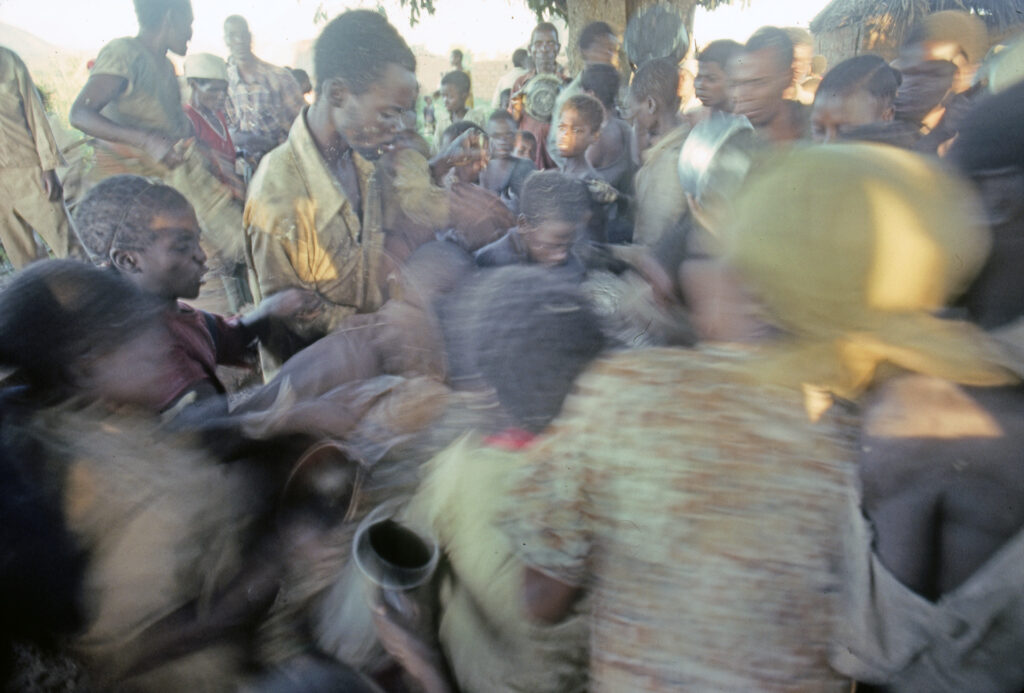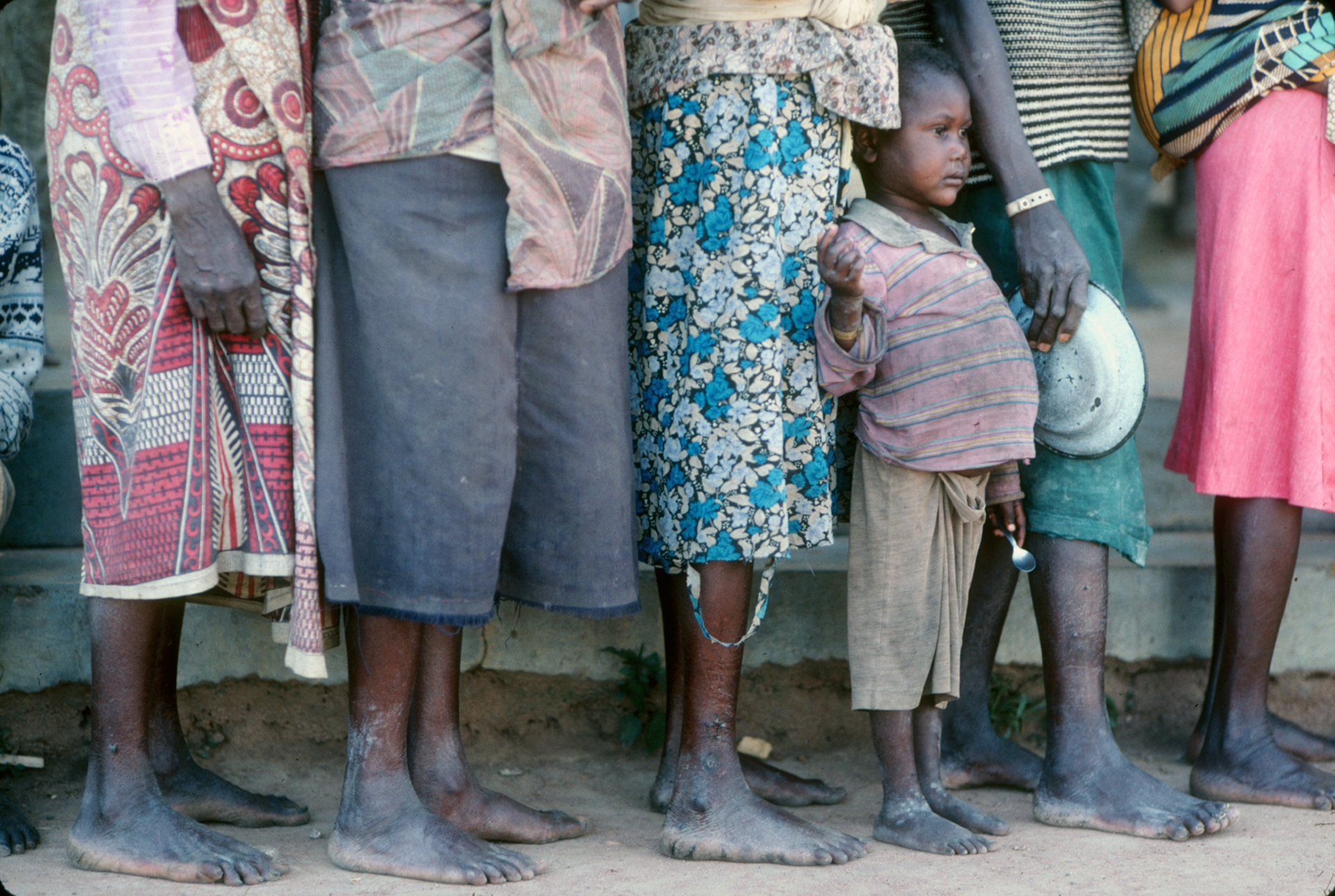People fighting over rice fallen on the ground at a food distribution centre, Kuito, Angola, 1995
Yet another warning, from the Intergovernmental Panel on Climate Change concerning the inevitability of the dire consequences of Climate Change.
Persuading politicians, in bed with the hydrocarbon industries, to leave the Athabaska Tar Sands in the ground, for example, is akin to persuading the Taliban to build schools for woman. Fundamentalists are people not in touch with the bigger, who ignorantly maintain a linear, short term perspective, and who tend to have more faith in beliefs than science and facts, or any contrary perspective. This is the stuff of revolutions, when the bottom line trumps human and environmental rights, and the disparity between rich and poor escalates to preposterous proportions.
The world is entering a new era, one of reckoning between those who see that ecological realities are inseparable from economic behaviour, and those that don’t. Imagine a relationship where the only important thing is making money. There is no love, passion, empathy, understanding, or sex….Only production and consumption…It’s called “The Corporation”, and the line between government, and business is growing dimmer.
Some 47 countries today live on the edge of starvation, political oppression and some form of violence. In the last 10 years it has become clear that these countries will be pushed over the edge as the effects of climate change erodes fragile food security systems, and dislocates hundreds of millions of hungry people, creating global political and civil unrest.
Of course if we don’t see the problems…Then they don’t exist.I think it was Aldous Huxley who said “To travel is to discover that everyone is wrong about other countries.” So is anyone surprized that over 60% of Americans citizens don’t hold passports?
Starving women with no place to go make flour from Sorghum on a war ravaged street in Kuito, Angola. They wait for the first food drop from the International Committee of the Red Cross (ICRC). There is no electricity, no transportation, no running water, no security, and few parents. Everyone here is homeless and a refugee. We came into this town holding white flags to organize a food distribution centre. The small envelope of cease-fire is tenuous. When emergency food (supplied by the U.N’s World Food Program and the ICRC), is cutoff, like war does everyday in Angola, or anywhere, then thousands will die within a week or two.
Preventing people from rioting/ fighting over food, is a major security challenge when dispensing rations. Fences are set up to stream line people to the place where they are handed their ration, which in this case amounted to two small cans of grain per person. People push and shove and often panic. If there are guns, then people are shot. Here people fight over grains of rice that have fallen on the ground.
Angola, 1995

